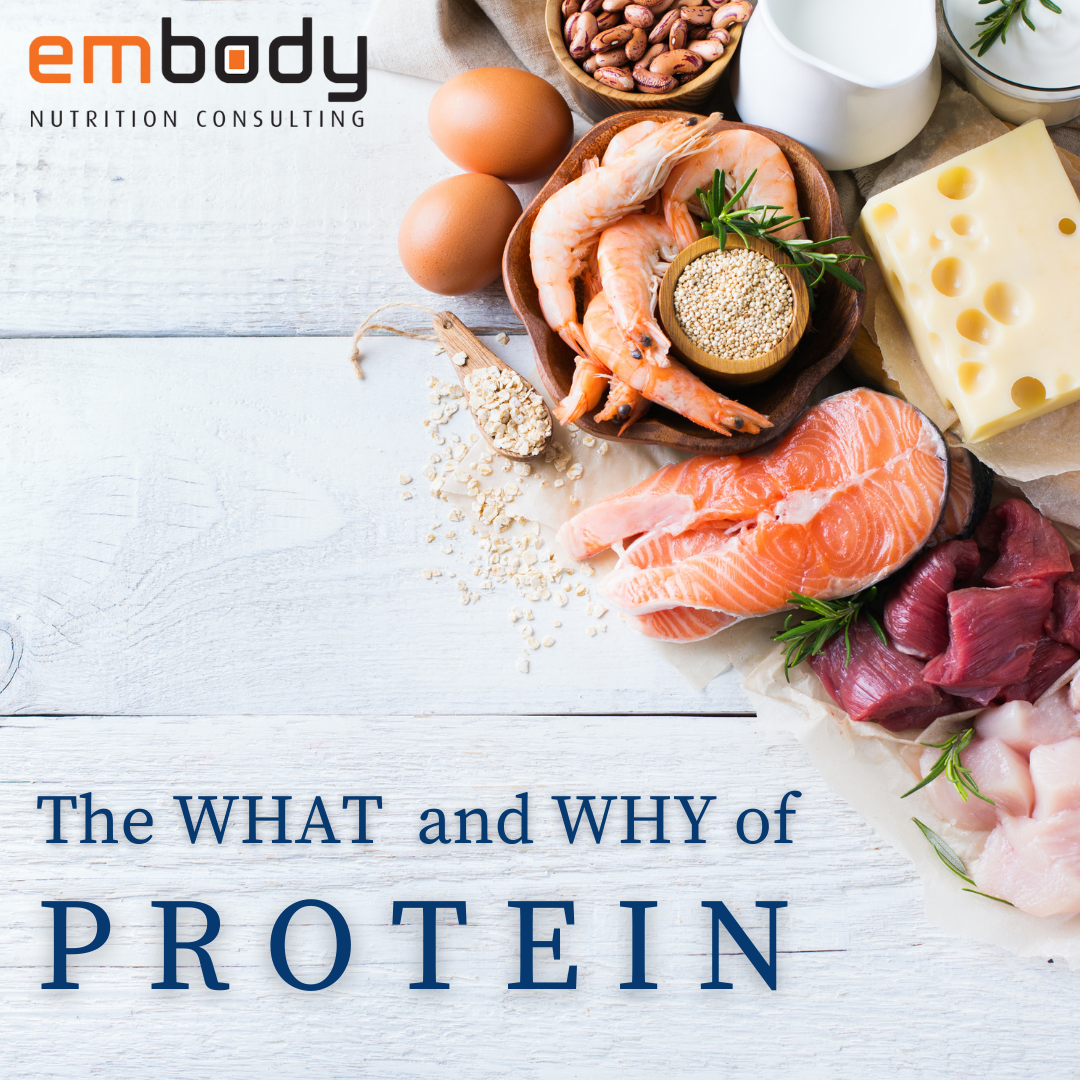Protein really feels like the ‘Golden Child’ of all the macronutrients. Fat has been demonised in the past (although has made quite the comeback recently) and carbohydrates continue to be the villain in the nutrition world to this day (carbs are great by the way, but that’s a story for another day!)
Protein seems to be the hero though and everywhere you look ‘high protein’ foods are popping up on the shelves. Some of these are great inclusions in your diet but many are unnecessary. In this article you will learn a little more about how to get your protein in each day and the best ways to do that.
Why do you need to think about your protein intake?
Protein is a really important part of your diet for a few different reasons. The first is that it plays a big role in building and repairing tissues in the body. This is important for everyone (especially during periods of growth) but particularly for active people. Exercising will break down muscle fibres and protein will help to repair these and help you to adapt to your training more effectively, meaning you become fitter, stronger, faster etc
Protein is also important as it is the most satiating nutrient of the 3 macronutrients (protein, carbs and fat) meaning that it can help you to feel full and satisfied from your food. This can be important when you have body composition goals as it will help to improve lean body mass and can assist with fat loss as well.
Foods that contain protein are also usually rich in other important nutrients such as iron and zinc (particularly animal products). Therefore, consuming these foods regularly can help you to meet your requirements for some micronutrients as well.
What foods have protein in them?
Protein is found in both animal and plant foods. Animal products are considered complete proteins as they contain all of the essential amino acids (the building blocks of protein) that our body needs.
There are a few plant foods that are also a complete protein but many are missing at least 1 of the essential amino acids. This is not say that are not effective – care just needs to be taken to consume a variety of plant foods to ensure that you are getting all of the amino acids from a range of foods.
Below is a list of foods that contain protein:
Animal sources
Red meat
Poultry
Fish and other seafood
Eggs
Milk and yoghurt
Some cheese eg. Cottage cheese
Plants sources
Soy products eg. Soy beans, Soy milk, tofu, edamame beans, tempeh
Quinoa
Lentils
Legumes eg. Chickpeas, black beans
Nuts and seeds eg. Chia seeds, almonds, flax seed
How much protein do you need to eat in a day?
This can be a tricky question to answer as each individual’s requirements will vary but in general, athletes and active people need anywhere between 1.6g-2.2g per kilogram of bodyweight per day.
For example, an 70kg athlete will require between 112g-154g of protein each day. This can be difficult to reach for many people and it is important to understand that these are the recommendations for optimal intake and they may not be completely accurate for you.
So how do you know if you are hitting this number each day? Well, you don’t! Unless you are tracking your food or have analysed your diet (which most people have not). To ensure that you are reaching your required protein intake each day, I usually recommend the following:
- Consume a quality source of protein at each main meal as a starting point.
- Aim for 20-40g of protein at each meal (eg. 150g chicken breast will provide about 30g protein).
- Don’t forget about breakfast! Eggs and dairy can be a great way to increase your protein at this meal.
- Add in at least 1 protein rich snack throughout the day. Examples of this could include a high protein yoghurt, some cottage cheese on rice cakes or a quality ‘high protein’ muesli bar.
- Consider supplementation if you really struggle to meet your protein requirements with food alone.
Do you need to have a protein shake if you train?
There is no additional benefit to having a protein shake compared to eating foods that contain protein. The main benefit for a shake is that it is convenient and portable.
It is important that you do consume protein following your training sessions (usually within the next 1-2 hours) but this could come from food or a supplement. If you would normally go home and eat your lunch within the hour following your training session, this may be enough to support your recovery and adaptation goals effectively.
If you are not able to eat soon after your session or your energy/protein requirements are very high overall, a supplement might be a great option after you train. As always, it depend on your unique situation and there is no one size fits all approach to nutrition or supplementation.
If you are interested in learning more about sports nutrition, you might like to check out our Embody Membership where you can get access to our Members Hub. In here you will find exclusive sports nutrition content, webinars and short videos as well as having all of our recipes at your fingertips. You can check out all of the info here.

